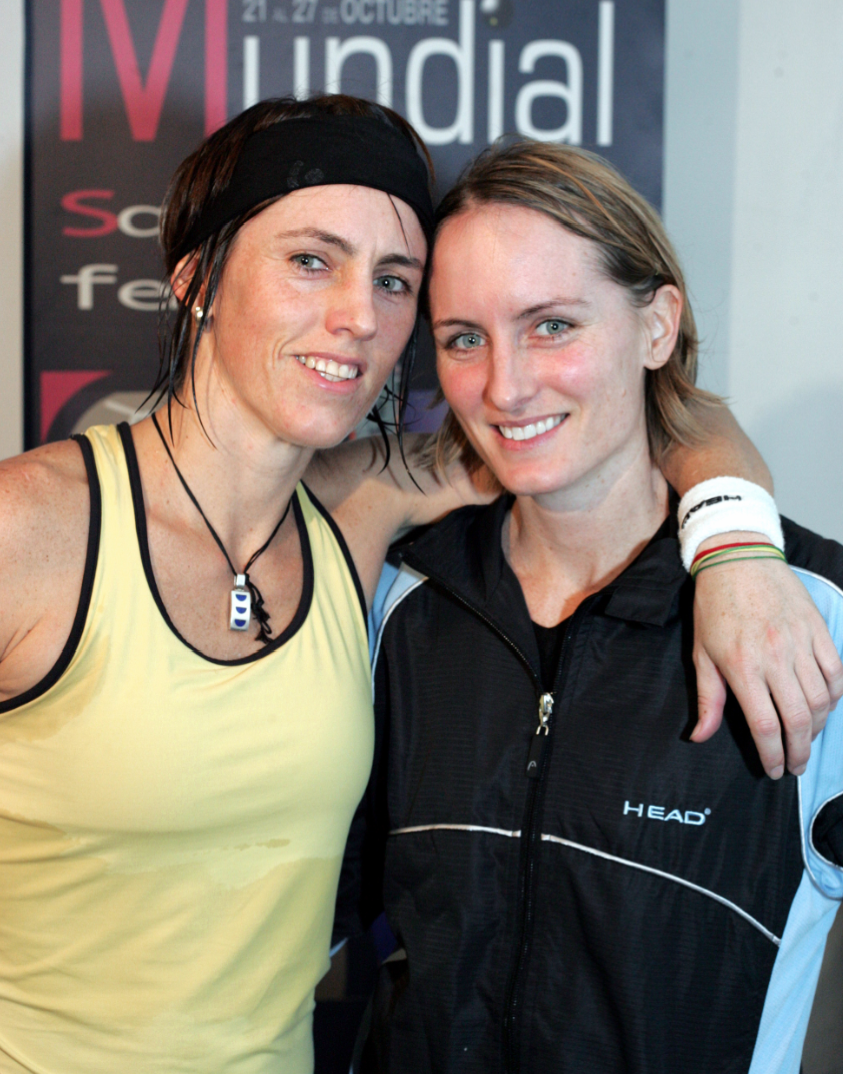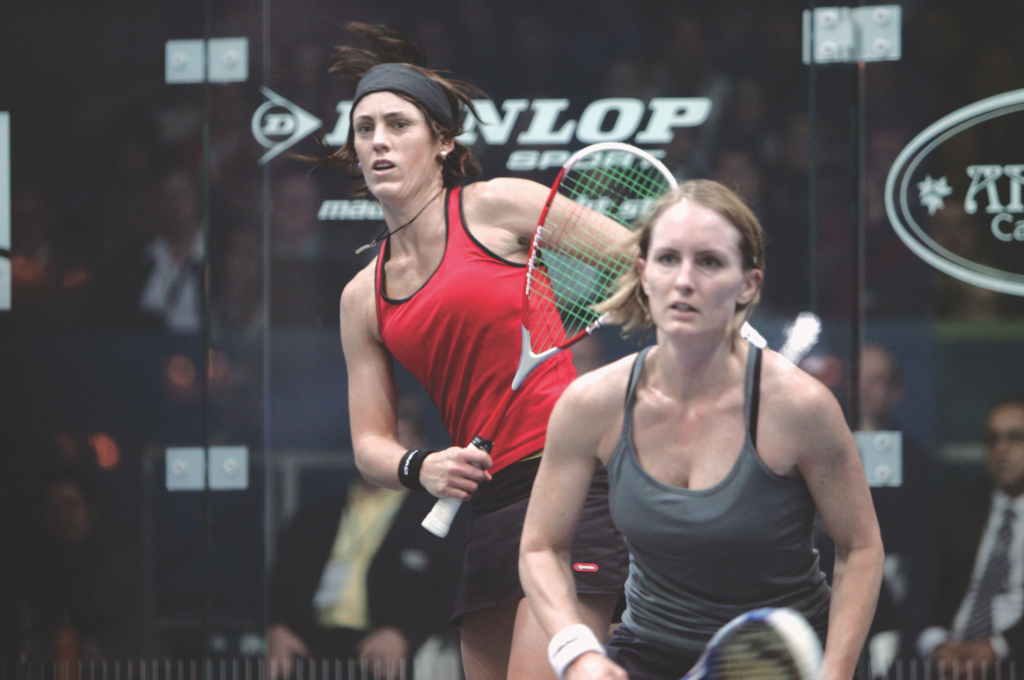
By Richard Eaton
Photos by Steve Line/SquashPics.com
Probably only Venus and Serena Williams, the two most iconic females in world sport, have achieved what Rachael and Natalie Grinham did when the sisters played each other in the World Open final before Madrid’s royal palace on a cool and elegant October evening.
Di and Ros Rowe, celebrated British twins, were world table tennis champions but never competed against each other in anything major. Nor did the Rumanian sisters, Manuela, Katerina and Magdalena Maleeva, despite being high quality tennis players all.
 And when Maude and Lilian Watson contested the first Wimbledon final, back in 1884, there were only 13 entries. Other sisters may have contested big finals in niche sports. But none in professional sports appear to have.
And when Maude and Lilian Watson contested the first Wimbledon final, back in 1884, there were only 13 entries. Other sisters may have contested big finals in niche sports. But none in professional sports appear to have.
This is not eye-catching trivia. In an era when efforts are being made to unlock the potential of women, it is usefully symbolic. This was sisterly history.
It means that the world title, which Rachael carved out for herself with a determined 9-4, 10-8, 9-2 win over the 14-month younger Natalie, was arguably less significant than what they achieved together.
Certainly Natalie thought so. “To be the first two sisters in the final feels fantastic,” she said. “Both being in the final is more of a dream than one of us winning it. It was almost perfect. It would have been if I’d have won it.”
Rachael’s view was only slightly different. “Finally we could look forward to playing each other because we were not knocking each other out of a tournament,” she said.
But the elder sister was still desperate to win. Not long having emerged from a dip in form, and the age of 30, she was perhaps more desperate than ever before.
Rachael’s victory was thus the outcome of greater desire, but also of better preparation than Natalie—who almost withdrew with an injured wrist—and of confidence boosted by her British Open triumph the previous month.
She also handled better the one crisis, at 2-6 down in the second game. Following tactical rule number one, she concentrated on a better length, making possible a higher ratio of attacking ploys, usually begun with a tight ball to the front.
Rachael’s retrieving was special too. Once when her terrier-like scampering rescued a point she had no right to win, Natalie tapped her with the edge of the racquet on the backside in mock retribution.
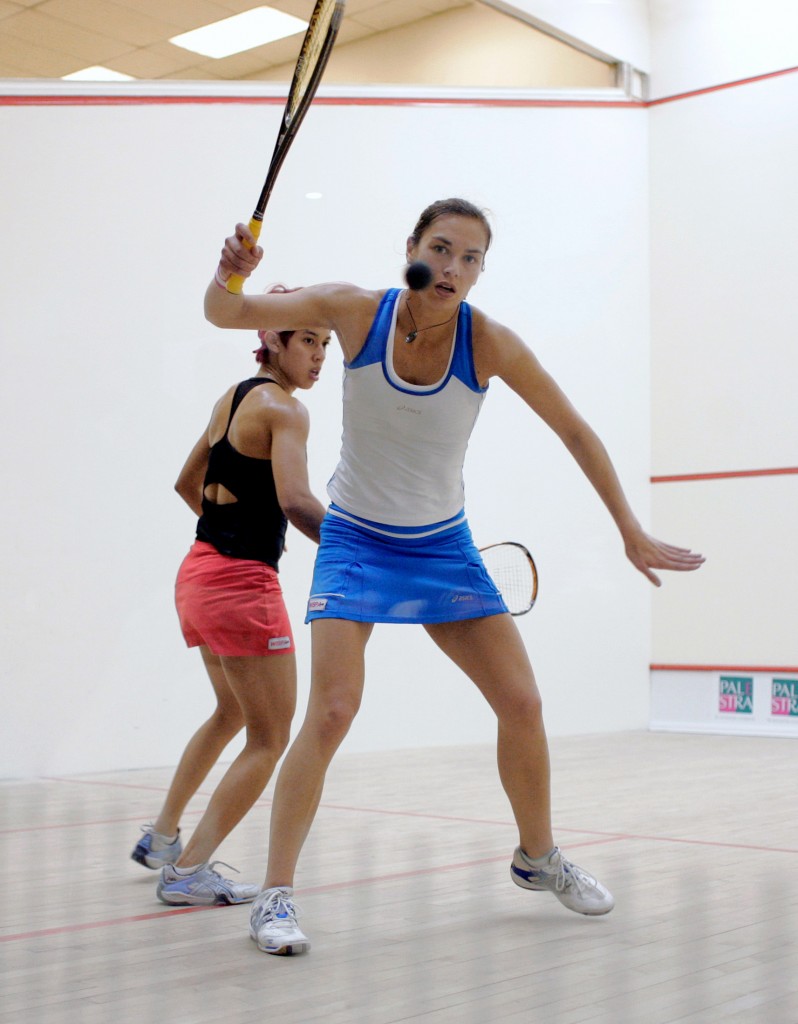
And in the third game Rachael got completely on top. Did she feel sorry for her little sister? “No—she got all three golds at the Commonwealth,” she replied. “We are pleased for the other when she wins, but we still want to win.”
But what they were achieving together was just as conspicuous. The decorative patterns of the rallies, the mesmerizing footwork, and the deft and imaginative racquet skills, were all created by similar styles, developed together over the years.
Afterwards Rachael announced that she aims to supersede Nicol David for a third time by regaining the number one spot. It was easy to sympathize with the heroine of Asia, for David had unusual bad luck.
These were the oven-and-fridge world championships. Two rounds were played in a boiling hot club, with bouncy, hard-to-control balls and three rounds on a transparent court outdoors where temperatures fell to five centigrade.
It meant that in the second round the Malaysian faced Shelley Kitchen, the tallest and hardest-hitting player in the tournament, in conditions perfectly suited to the New Zealander, who was at her forthright best and won in five games. Next day Kitchen played Natalie Grainger in conditions perfectly suited to the American—and won three points.
“If the whole tournament had been played in those hot conditions Shelley could have become world champion,” Natalie Grinham volunteered. It was like two events in one.
David did not have the ball control to keep the ball tight in the fiery conditions and it was the first time in 30 months and 36 tournaments that she had failed to reach a WISPA Tour quarter-final.
But the demise of Kitchen suggested this was a tournament of what might have been for Grainger. By the time the in-form lady from Washington, DC, confronted Rachael Grinham in the semis she had lost only 14 points in three matches.
Hence many thought Grainger could bring Grinham down. Grainger thought the same. So when she lost 5-9, 9-6, 9-4, 9-3, she was, she said, “pretty disappointed.”
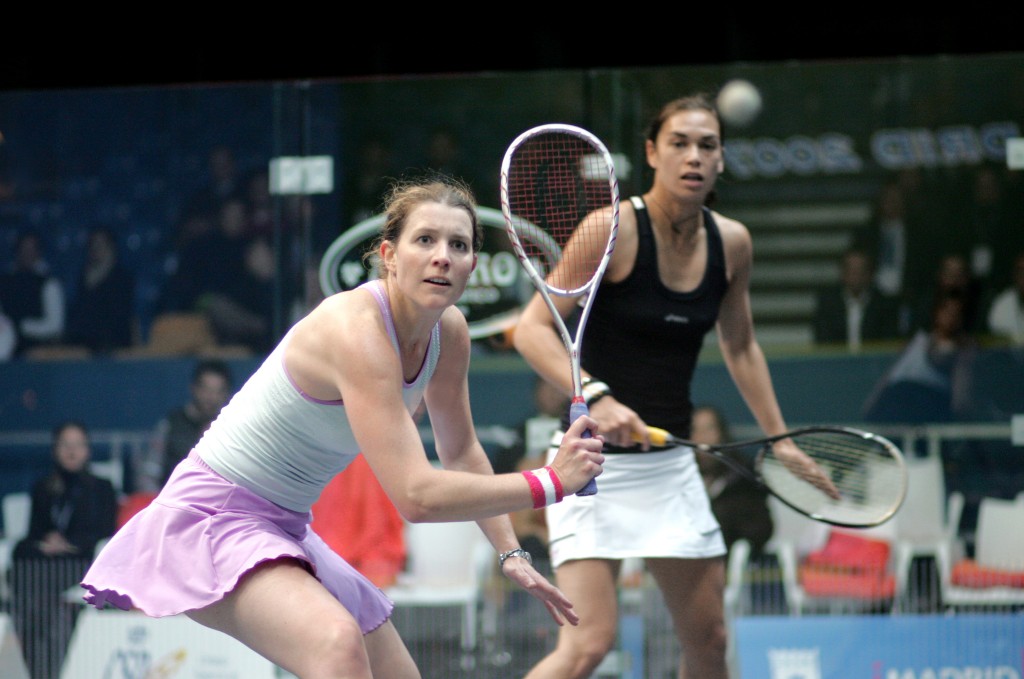
She had, after all, weapons of contrast, fierce and gentle, both dangerous in the cool conditions, and though her mobility couldn’t match Grinham’s she was fitter than for a while.
Sure enough Grainger recovered from 2-8 to 6-8 in the second game, at which stage she might have taken control. She also led 4-0 in the third, but was becoming troubled by the harassing court coverage of the Aussie, who went from 2-4 to 9-4 in one hand and took 14 successive points till 7-0 in the fourth.
“When I was down 2-8 I thought you have to lengthen the rallies rather than play all this quick-fire stuff,” Grainger said. “And when I got back on top in the next game she started lobbing everything and I stopped hitting through the ball.”
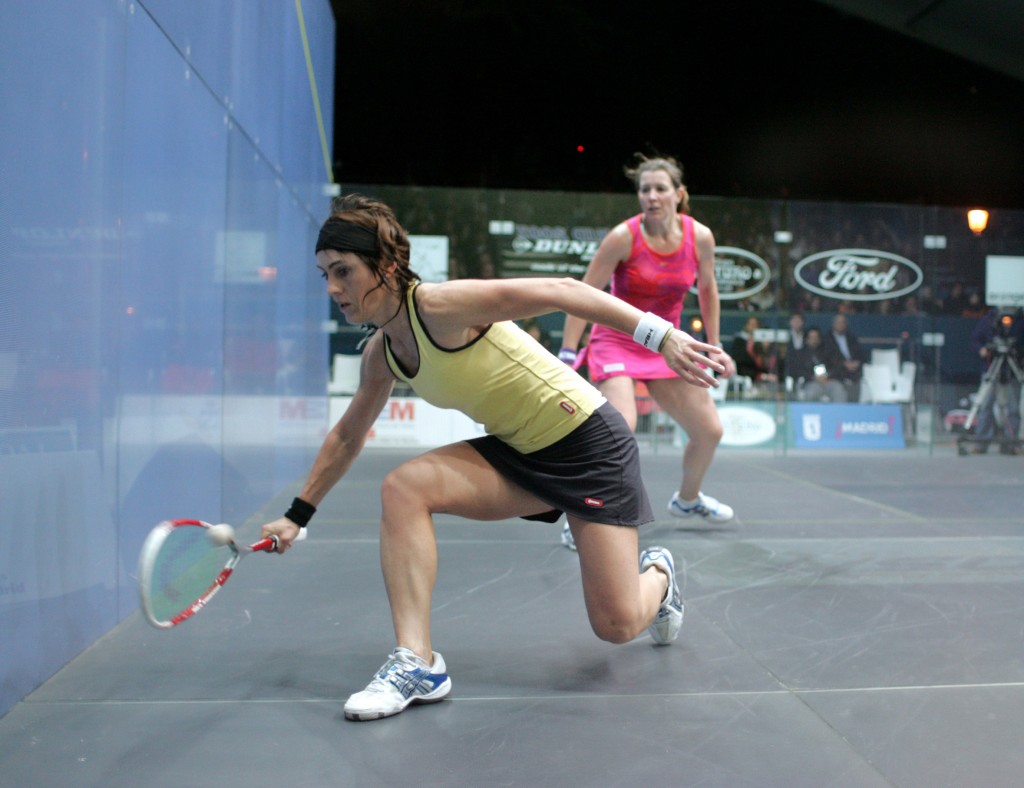
Grainger also tossed her racquet about and began to argue towards the end. She sensed a great chance was slipping away, and may fear there won’t be too many more.
But she contradicted that. “I’m only 30—of course there will,” she said. She’s a strong character, so who knows?
Another former number one looking fit again was Holland’s Vanessa Atkinson, who nevertheless missed three crucial game balls in the second game and lost in four to the England number one, Tania Bailey, who had been on antibiotics.
Bailey was still much luckier than Madeline Perry, the top ten Irish player who suffered head injuries in a mugging incident and withdrew.
In happy contrast, Mercedes Coghen, chief executive of Madrid ‘16, did come. This was a bonus. Squash stands every chance of joining the Olympics if her city wins the bid this time, she said.
It was only a fat finger on a computer keyboard, it is rumored, that inadvertently prevented Madrid ’12 from eliminating London and reaching the final vote last time. Both the Spanish capital and the sport of squash are due some luck.


